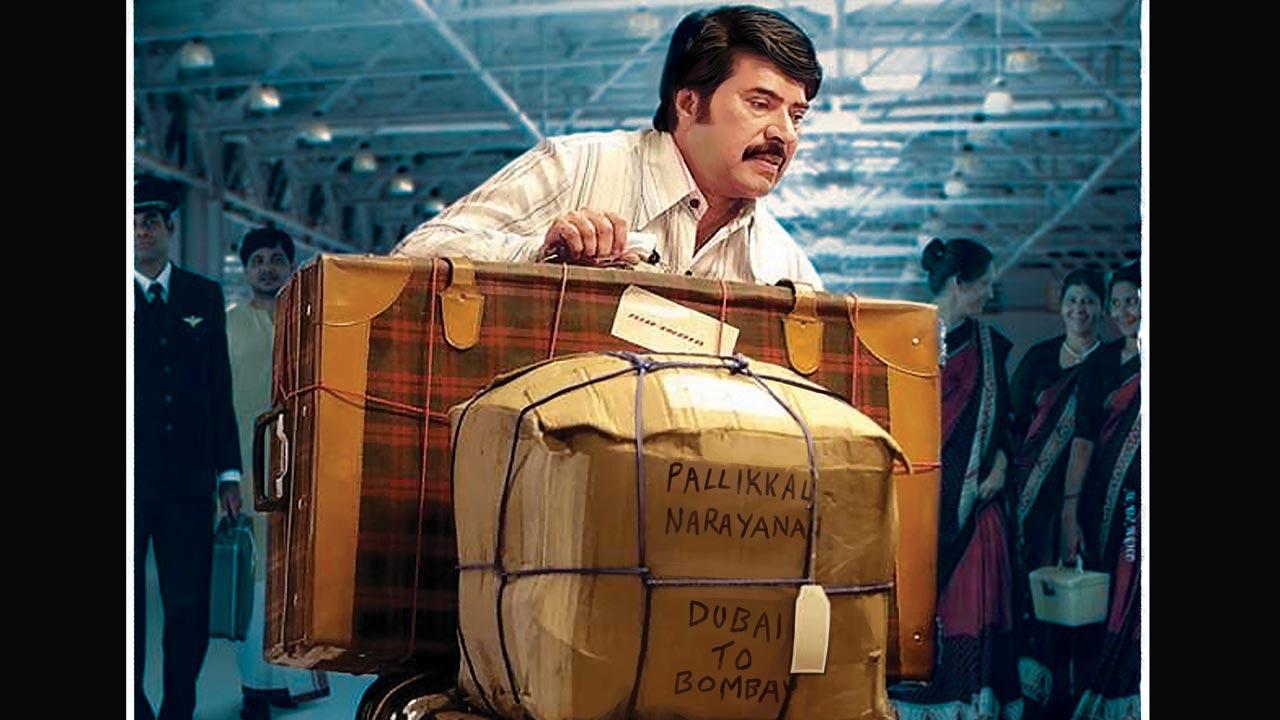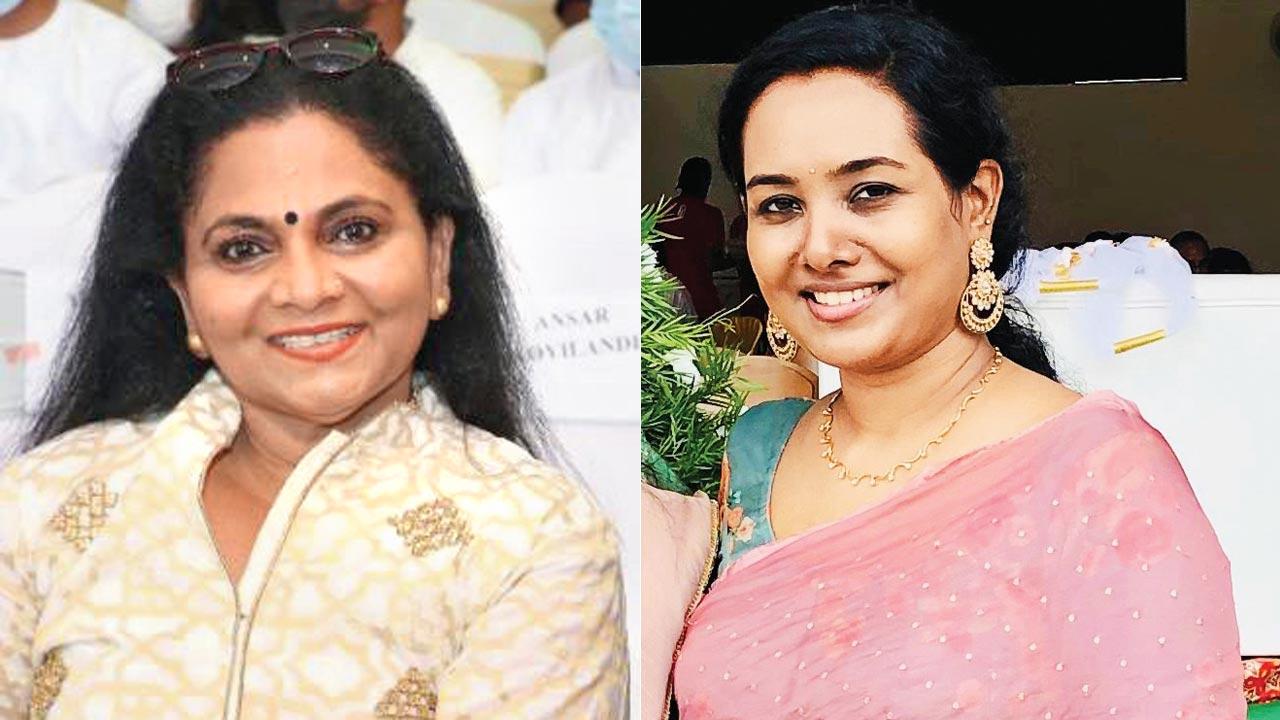With the UAE promising to open a state-of-the-art food park in Kerala, Malayalis who migrated to the Gulf years ago discuss the advantages of life in the country even as some insecurities remain

The Gulf Dream has found reflection in popular culture. Period drama film Pathemari follows the life of Pallikkal Narayanan (Mammootty) who migrated to the Middle-East in the early 1960s. Photo Illustration/Uday Mohite
Ambili Narayanan moved to the UAE from Kerala after she got married in 1989. Her husband who worked with a British firm at the time which had associations with several ministries was able to get a visa for her even before they got married. “From day one, it was a decision that we took together,” says Narayanan who started her career as an environmentalist in the early 1990s at a time when it was still a fairly new discipline. She now works as an environment and sustainability manager and has been associated with several infrastructural development projects in the Palm Islands and with Etihad Rail and has worked in countries like the UAE, Qatar and Kuwait. Nearly 32 years later, Narayanan says she never felt regret about their decision, both husband and wife having used these years to accomplish themselves with educational degrees and starting their own business. “We never saw this country as a temporary home,”
she says. “It wasn’t just me coming all by myself; we moved together as a family.”
Moreover, because of her husband’s job, they found themselves living a comfortable life in a villa in the new country. “Had we come into a small flat, I may have felt differently but since that was not the case, in my mind it was just a shifting of location.” She admits that at the time, she knew few families from Kerala who were moving to the Gulf the way they had. “I went from being part of a subset to a superset, so initial challenges were there, but my husband had already lived in the UAE for a few years by then so he already had friends with families for me to get accustomed to. I could interact with members of other nationalities too—it was easy for me to get into that current.” At the same time, Narayanan has held on to her roots through Mohiniyattam, Bharatanatyam and Kuchipudi classes, allowing her to participate in and teach children for social functions and preparing elaborate Onam sadhyas with members of her husband’s family, originally from Travancore, who like her are now based in Dubai.
 Ambili Narayanan and Meera Len Thomas
Ambili Narayanan and Meera Len Thomas
Kerala CM Pinarayi Vijayan’s recent tweet announcing that the UAE has promised to open a state-of-the-art food park in Kerala, and thanking the Government of UAE for their support for Kerala’s development is only the latest occurrence in what has been a longstanding partnership.
Starting in the mid-1960s, a large number of Malayalis migrated to the GCC states in what is known as the Kerala Gulf Boom, aiding many to improve their social, educational and financial situations and succeed as entrepreneurs, doctors, engineers, architects, teachers and journalists in the Middle East. In 2010, the Gulf Cooperation Council (GCC) states contained a total Keralite population of more than 3.5 million, who annually sent home a sum of around $6.81 billion (US), which is more than 15.13 per cent of the total remittance to India in 2008. In 2013 the remittance was more than R60,000 crore (600 billion) . These foreign remittances in the form of money sent by its workers have been a key source of income for Kerala’s economy. “At any point in time, the Gulf countries provided jobs to nearly 10 per cent of Kerala’s working population. Without the Gulf migration, high levels of unemployment and poverty would have made Kerala a hotbed of terrorism, communalism and social tensions”, an Economic Times article quoting Professor Irudaya Rajan of the Centre for Development Studies, Thiruvananthapuram, stated.
In 1996, NORKA or the Non Resident Keralites Affairs was a department of the Government of Kerala that was formed to redress the grievances of Non-Resident Keralites (NRKs) and strengthen the relationship between the NRKs and the Government of Kerala. NORKA Roots, its field agency set up in 2002, is a forum for safeguarding the rights of NRKs and rehabilitating the returnees. In 2019, the UAE government launched the Golden Visa project to overcome the recession caused by the pandemic, allowing foreigners to stay, study and work in the UAE without a sponsor. Mammootty, Mohanlal, Dulquer Salman, Tovino Thomas, Nivin Pauly, Prithviraj Sukumaran are only some among many Malayalam actors who have received the golden visa.
This migratory trend has found reflection in popular culture too with many Malayalam films depicting Kerala’s Gulf connection, its socio-economic impacts and the lives of Malayali immigrants. Period drama film Pathemari (2015), for instance, follows the life of Pallikkal Narayanan (Mammootty) who migrated to the Middle-East in the early 1960s, in the early years of the Kerala Gulf boom.
Meera Len Thomas grew up in Mumbai and studied at the Canossa Convent till Class IX, moved to Sharjah in 1998 with her mother and younger brother to join their father who had been working in the Gulf for a while. She, however, went back to Kerala to do her graduation and joined investment banking company JP Morgan Chase soon after. “After two years of working there and earning peanuts and paying tax for the peanuts that I was earning, I decided to move to the UAE because my parents were there. I came to Dubai and my salary increased from Rs 12,500 to Rs 1,08,000 with no tax. I was living with my parents, so I didn’t need to pay rent and the food was ready on the table, so why wouldn’t I go for that option? I was saving up that money,” shares Thomas. She eventually married a third-generation immigrant from Kerala, recalling how a lot of families from the state were already there when she moved, the place being a safety net for Keralites helping new entrants to migrate and settle down.
The move was a good decision for the family in terms of finance and education, she says. The Gulf is a paradise for parents, she insists, the environment being safer for children who generally don’t avail of public transport by themselves while commuting to and from school. The new school also provided a more relaxed environment after the formality of her convent school upbringing. Besides, there was new exposure to the UAE’s more cosmopolitan environment. “In Mumbai, I was hardly seen in my school. I was the smallest fish in the biggest pond. I was in a class of 80 students and I was a child no one probably would have noticed. When I switched to a school in Dubai, everyone noticed me because it was a smaller number and because I came across as very confident because I was raised in Mumbai,” she says.
“I can’t imagine studying and working at the same time in Mumbai with the traffic and pollution. Life in Mumbai is so busy and competitive,” she says, recalling how the move made her realise that life could be easier. The quality of life was also better in the new country, she shares. “Dubai is easier to live in in terms of adjusting and people.” Being Christian also meant being part of Christian community churches which became a new family in the new land. “Every week, there was a social gathering after the service and that became a way of getting to know other families,” says Thomas. “The kids grow up together and when they are older it’s convenient to find a match because the parents have known each other for years.” The only risk, Thomas points out, in this new utopia, is the looming fear of losing one’s source of employment. “If you lose your job and don’t manage to get another one, you’ll have to leave the country.”
 Subscribe today by clicking the link and stay updated with the latest news!" Click here!
Subscribe today by clicking the link and stay updated with the latest news!" Click here!










